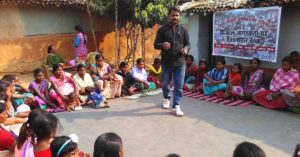TBI Blogs: Kanchan, Janki, & Lata Never Finished School but Are Ensuring Children in Chhattisgarh Finish Theirs
In the rural and tribal areas of Chhattisgarh, women are traditionally relegated to household work in deeply patriarchal settings. However, three women are changing this status quo and pushing for education for the region’s children.
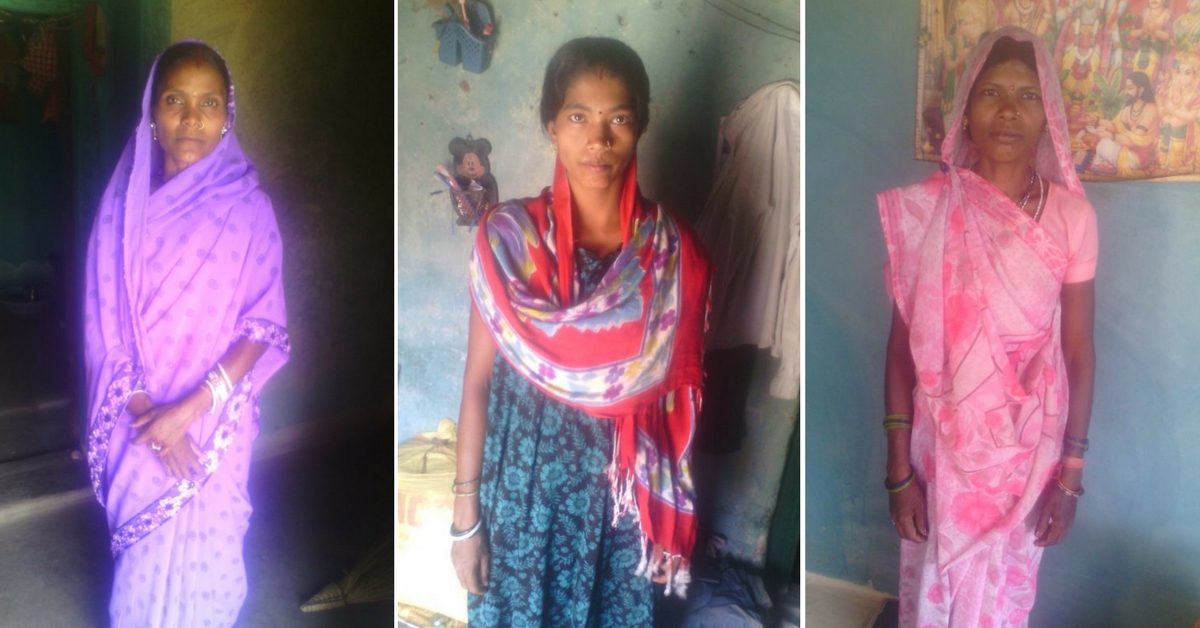
For once, within the villages of the deep forests of Chhattisgarh, there appears to be a revolution of a different kind. Three young women have taken it upon themselves to change the lives of their own children and those around them. These young mothers are bringing in a change in their nondescript villages by pushing themselves beyond limits to advocate for the right to education – not only for their own children, but also those of others.
Kanchan Kuwer, Kotmer
Kanchan Kuwer is a busy woman. When not toiling away in the urad dal fields, the 25-year-old, spends time visiting homes in her own village Kotmer in Chhattisgarh and those surrounding it, asking parents to see that their children attend the school regularly. Kotmer, with a population of 1,200 residents, lies 5 km. away from Kartala block, in one of the remote tribal belts surrounded by lush green forests and wildlife.
Married off at the young age of 17, Kanchan says it sure has been a difficult task, but it’s worth it. “Earlier it was difficult to make the women understand why it is necessary to send their kids to school. A majority of them refused to listen to me, while many would ask me not to interfere in their lives. A few even shouted at me to mind my own business,” she recalls, further adding that at times some women even discouraged other women from sending their children to school, but Kanchan did not pay any attention to them and continued to do her own work.
Her efforts have finally paid off. “Parents not only come to school to attend the meetings (they never did earlier), but they also send their children to school regularly,” says Kanchan, confessing that she too wants to study further someday so they she can inspire others too.
“I want to study more, but due to severe financial constraints I am unable to do so,” she cites sadly, having studied till Class VIII.
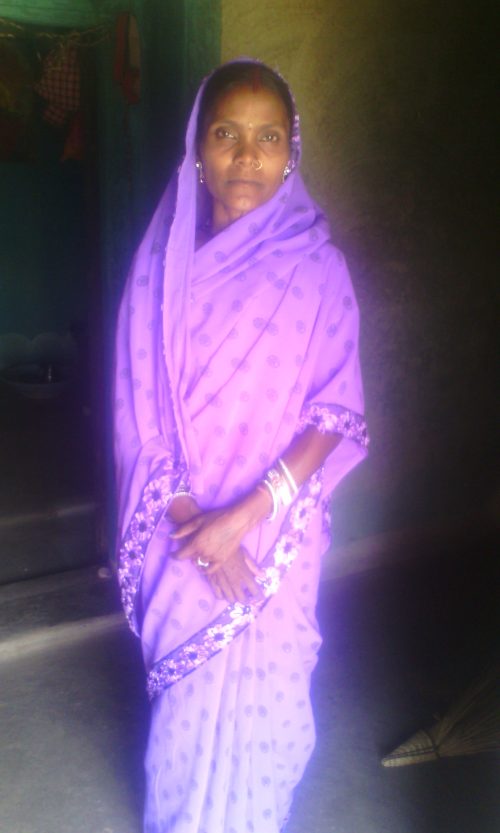
A mother of three kids, Kanchan makes a living working as a farmer and manages to earn ₹4,000 approximately every month.
She says she has been associated with the school regularly since 2014, although she has been a regular visitor prior to that.
“I attend meetings where I insist parents send their children to school and get them to complete their education. I also inform them of the rights of the children and encourage them to take action if they see something wrong happening. Not only that, I also insist that they should take a keen interest in what their child is learning, both at school and at home,” she says, adding that she also makes it a point to inspect the classrooms while the children are studying during school hours. “If I sense any limitations or issues, then I discuss the same during my meetings with the senior level management.”
Kanchan presides over the School Management Committee in the village, and has been instrumental in pushing parents to keep a check on their children’s progress in school. She not only requests them to inquire with their children from time to time what they learn in school, but also asks them to check their homework and visit the school regularly in order to know the way teachers are teaching them.
Moreover, she has been guiding them on issues of cleanliness and health, due to which the village women have begun understanding the importance of cleanliness and are following Kanchan’s advice diligently.
Janki Patel, Dwari
Like Kanchan, Janki Patel interacts with women from her own village from time to time to explain the benefits of education in the lives of their children. Janki, who does odd jobs in the neighbouring fields, makes it a point to attend the School Management Committee meetings regularly in order to understand the process. A school dropout herself, she confesses she wanted to become a teacher when she was young, but attending her 8-year-old’s school is as close as she can be to her dream.
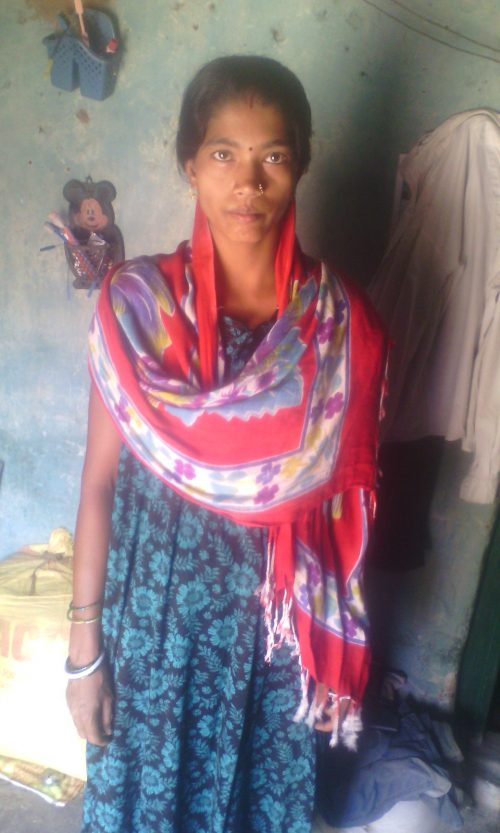
Janki, who belongs to a lower community and resides in a village which has a population of only 560 people, is one of the most enthusiastic lot.
“I too have studied till Class VIII and couldn’t study further because my mother died and I had to take care of my family. I was married off at 17,” says the 30-year-old, who is the mother of three children and has six members in her family. Together, they manage to earn ₹6,000 per month through their main business, which is farming.
Janki, who has been a member of the SMC since 2012, attends the meetings regularly and also gives her suggestions from time to time.
“I ensure that the children are getting their mid-day meals in school on time. My husband also supports me, and I enjoy great support from my mother-in-law too,” she states, adding that there are women who often tell her not to interfere in their lives, but she refuses to give up.
Lata Rathiya, Lekhdut
Meanwhile, in the village of Lekhdut, Lata Rathiya, another young mother, is encouraging women to send their children to sports classes so that they become more fit and active.
With a population of merely 315, Lekhdut lies in the Korba district of Chhattisgarh. Like the other two women, Lata too studied till her Class VIII and was dissuaded from studying by her own family members. “My family did not allow me to study further, saying that I am not capable of finishing my Class X. They married me off when I was 17 years old,” she says.
Lata works alongside her present family of five members – that includes three women and two men – on the farm, and together they manage to earn ₹4,000 per month, which she says isn’t sufficient, yet they somehow adjust in whatever they have.
Despite Lata not having any children of her own, she visits the homes of those who have them, every alternate day, to see that her advice is being taken seriously.
At the local weekly markets too, she can be overheard discussing why sports and education go hand in hand.
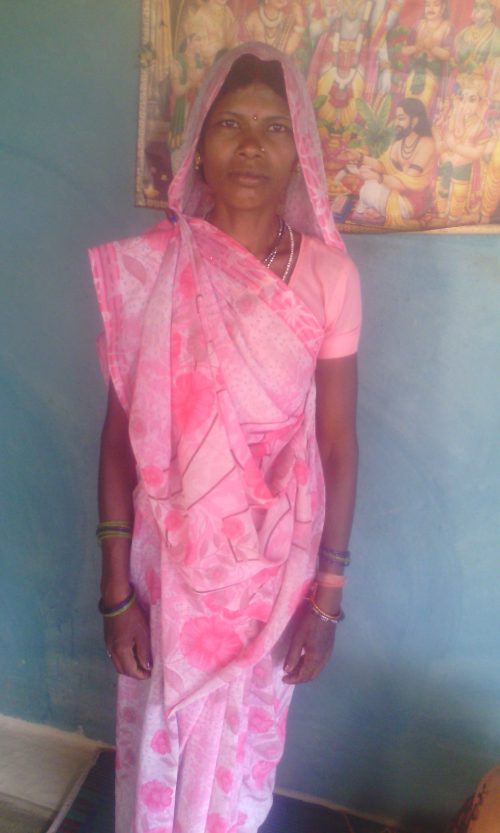
“I was very active in sports when I was a school-going kid. Sports makes you fit, and every child should play sports along with education. This is why I encourage both the parents and their children to make sports a part of their lives. In our village, there is only one sports class, which is managed by Kumari Chameli Rathia, and I see to it that most children go there after completing their studies. I also want to study further and teach children, but due to financial conditions it is not possible for me to do so.”
She further adds, “I request all parents to send their child to school so that they can live a better life and can manage on their own. I also request teachers to also pay more attention to each and every child, because each one has something special in them and they should be treated equally yet differently.”
Kreeanne Rabadi, Regional Director, CRY-West says that it is heartening to note that women like Kanchan, Janki, and Lata have taken it upon themselves to usher in progress not only in their own lives, but also that of others through education.
You can help efforts to support more such women by donating to CRY and its partner organisations here.
Like this story? Or have something to share? Write to us: [email protected], or connect with us on Facebook and Twitter.
NEW: Click here to get positive news on WhatsApp!
If you found our stories insightful, informative, or even just enjoyable, we invite you to consider making a voluntary payment to support the work we do at The Better India. Your contribution helps us continue producing quality content that educates, inspires, and drives positive change.
Choose one of the payment options below for your contribution-
By paying for the stories you value, you directly contribute to sustaining our efforts focused on making a difference in the world. Together, let's ensure that impactful stories continue to be told and shared, enriching lives and communities alike.
Thank you for your support. Here are some frequently asked questions you might find helpful to know why you are contributing?


This story made me
-
97
-
121
-
89
-
167




